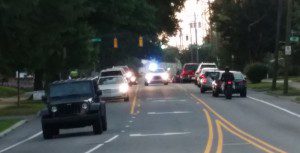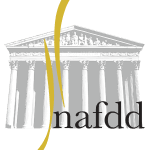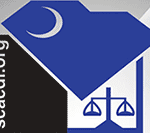Texting While Driving
 The dangers of distracted driving are obvious but have only worsened as new technology is released. In the past, cars were simple. The only real distraction was a radio, not even a cassette or cd player. Today, vehicles look more like airplane cockpits with GPS navigation maps, sound systems with hard drives, ports to connect any number of external devices, voice recognition systems, linked cell phone service, satellite radio and television service, and other amenities.
The dangers of distracted driving are obvious but have only worsened as new technology is released. In the past, cars were simple. The only real distraction was a radio, not even a cassette or cd player. Today, vehicles look more like airplane cockpits with GPS navigation maps, sound systems with hard drives, ports to connect any number of external devices, voice recognition systems, linked cell phone service, satellite radio and television service, and other amenities.
Is it any real wonder drivers are almost constantly distracted and having more accidents? And now, there is development of “hands free” driving systems and even “driverless” cars in the works. In theory, technology simplifies our lives. Instead, we have become victims of our successes. In an effort to curb some of the unintended effects of our advanced technology, North Carolina, like 39 other states, has outlawed texting while driving. Other states have gone further to prohibit even the handheld use of mobile phones while driving. Not everyone has “handsfree” cell phone systems in their vehicles. Nevertheless, we have become a mobile phone society that is obsessed with “staying in touch.”
Practical Effect of NC’s Texting While Driving Law
North Carolina’s distracted driving laws are clearly aimed at protecting children and teens. Drivers under age 18 are not allowed to use mobile phones while driving except in emergencies or to contact their parents. And, school bus drivers are not permitted to use mobile phones for any non-emergency reason while driving. However, distracted driving laws as to adult drivers are much more lenient and only place restrictions but do not completely ban mobile phone use. Even using your mobile phone to read or send text messages or emails, while prohibited when vehicle is in motion, has many loopholes that will make this law difficult to enforce.
For example, using your mobile device while sitting at a stoplight seems to be permissible as the law allows texting or emailing when a vehicle is “lawfully parked or stopped.” Using your mobile phone to make or receive calls while driving is allowed. There is no current requirement for “hands free” only operation. Drivers are also permitted to read caller ID information and other stored information to make phone calls while driving. The use of voice-activated technology and GPS devices are also still allowed. In short, there is only a very narrow window of opportunity to run afoul of this law. To be prosecuted, an officer will have to witness a driver actually entering information into a mobile device. Otherwise, how are the police to distinguish someone who is reading an email (prohibited) from a driver who is lost and using a GPS navigation system (not prohibited).
It is also curious that the only real punishment is a low fine ($100.00) and court costs. No driver’s license or insurance points are assessed. Driver’s License or Insurance points are not assessed. This is surprising as the dangers of texting while driving and resulting accidents that was the reason for this law. However, in addition to a texting while driving charge, distracted drivers who venture into other lanes may also be given a citation for reckless driving, a much more serious traffic offense. And, personal injury lawyers will easily be able to show negligence, even if not per se, when the foreseeable happens. Conversely, civil defense attorneys will be able to demonstrate contributory negligence when a driver is texting and causes an accident.
Why Fight a Texting While Driving Charge
You may still want to challenge the charge even without the risk of driving or insurance points. After all, the $100.00 fine plus court costs will be more expensive than hiring a Charlotte traffic ticket attorney to represent you in court. And, by retaining a lawyer, you can avoid the hassle and inconvenience of having to fight Charlotte downtown traffic and wait to handle this matter yourself. That alone is worth the fee.
How Can We Help You?
Oranizations
American Association of Premier DUI Attorneys (2015) State Ambassador for NC
America's Top 100 Criminal Defense Attorneys (2017)
Better Business Bureau (A+ rating) (2018)
Best Attorneys in America (2017)
Million Dollar Advocates Forum (2011)
National Academy of Criminal Defense Attorneys (2014)
National Advocacy for DUI Defense (2016)
National College for DUI Defense (2012)
National Trial Lawyers Top 100 (2012)
National Trial Lawyers Top 100 (2012)
SC Workers Compensation Educational Association (1989)
Super Lawyers (2012)












